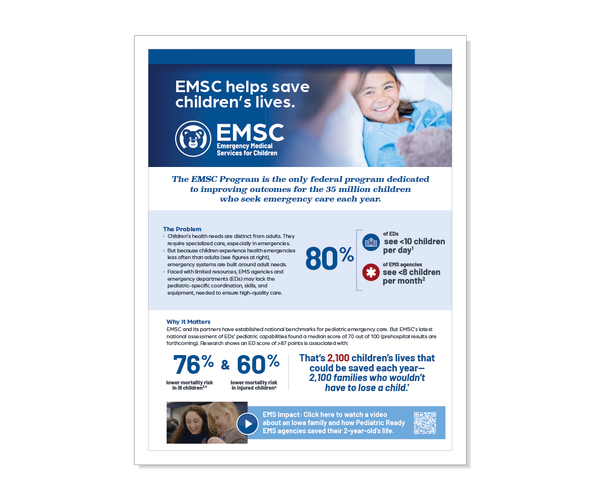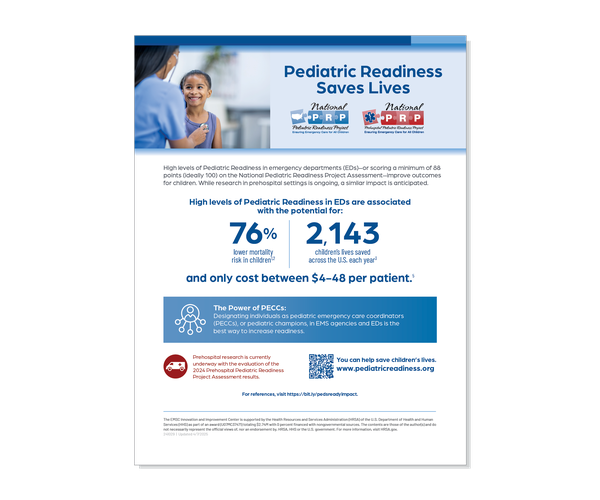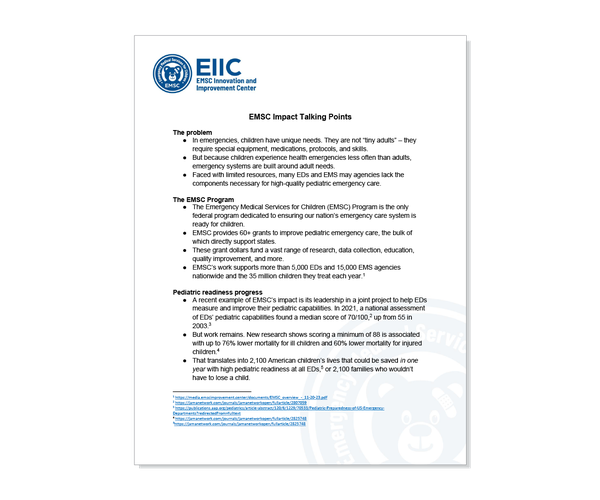In emergencies, children have unique health needs. They require special equipment, medications, protocols, and skills. But because pediatric emergencies represent <25% of all visits, emergency departments (EDs) and emergency medical services (EMS) agencies may not be designed to meet pediatric needs.
The EMSC Program is the only federal program dedicated to ensuring our nation's more than 5,000 EDs and 15,000 EMS agencies are well-prepared to care for children. EMSC provides 60+ grants that touch every corner of the the United States. Grant dollars fund a vast range of activities, including: research, national assessments, educational resources, workforce training, and more.
New research shows the impact of this work: an ED being well-prepared for pediatric patients is associated with the potential for 76% lower mortality rate in critically ill children and a 60% lower mortality rate in critically injured children. That translates into the potential for 2,100 children's lives saved – annually.
EMSC has made great strides despite limited resources over the last four decades. Its yearly budget of $24 million represents approximately 0.0005% of national health expenditure annually. During reauthorization, Congressional committees review the program and vote on its parameters and funding levels.
How the process works: A bill reauthorizing the EMSC Program is introduced in the House of Representatives and voted on by members of the House’s Energy and Commerce Committee. A companion bill is then introduced in the Senate and voted on by members of the Senate’s Health, Education, Labor, and Pensions Committee. If the bill passes in both committees, it goes to the full House and Senate for a vote. If it passes both chambers, it goes to the president for signature.
Note: EMSC grant recipients can engage in advocacy (providing policymakers with general education and information about a topic, like pediatric emergency care), however, they must not engage in lobbying (advocating for or against a specific piece of legislation or policy). The full HHS policy for grantees is available here.







